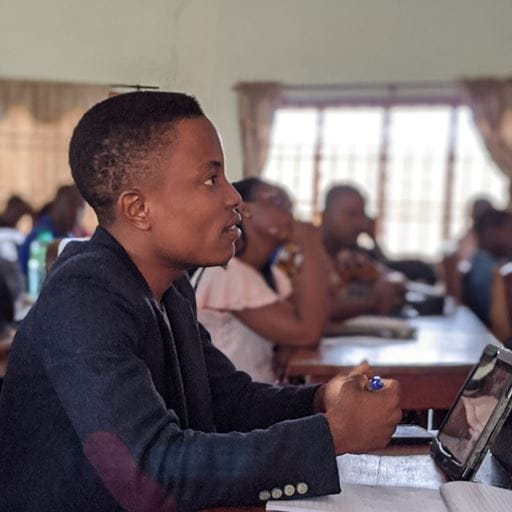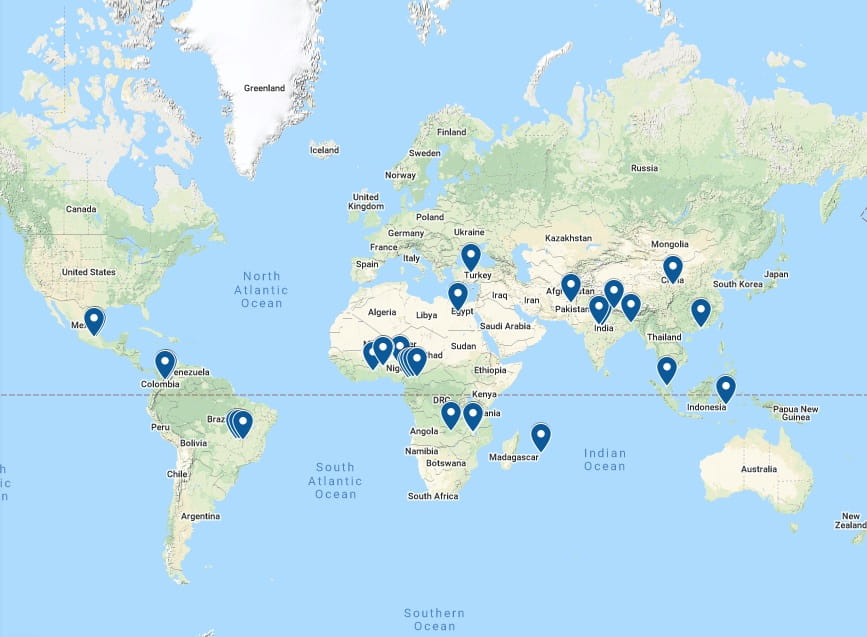Incoming Visiting Fellowships – Essex Summer School In Social Science Data Analysis

GCRF@Essex interview – Professor Gina Yannitell Reinhardt
1. What are your research interests and main research activities?
I study how citizens and policy makers make decisions under uncertainty, and how those decisions affect economic, social, and political development and subsequent policy outcomes. I focus specifically on projects designed to build resilience to disasters and help aid disaster recovery, principally by addressing interpersonal and political trust. I evaluate local and international programmes in an effort to understand how financing can be judiciously allocated to help avert, alleviate, mitigate, and manage disasters. I am committed to helping build research and policy capacity in local and national governments through this research, particularly in the Global South.
2. What specific activities did your GCRF@Essex funding support?
This particular funding support Fellowships for more than 30 students in Summer 2020. Each student was a citizen of the Global South, and each was given tuition, books, and internet/wireless connectivity to enable attendance in a class at the Essex Summer School in Social Science Data Analysis. Students studied courses spanning the entire summer school schedule (13 July – 21 August 2020) at the University of Essex. Their classes ranged from introductory to advanced, and included methods as varied as web scraping, ethnography, interview techniques, and survey analysis. They learned to work with a variety of software and data collection methods, and were taught by scholars from around the world. As part of their fellowship, each of these Fellows gave a research presentation via webinar, to which guests and high profile scholars were invited. Students thus received international exposure for their work and earned experience in presenting to an international audience.

Map showing the country of origin of the participating Research Fellows.
3. How did you invite and select scholars to attend the Essex Summer School in 2020?
I sent out an email announcement via the mailing lists of the Disaster and Emergency Research Network, and the Global South Academic Network (GSAN), as well as other mailing lists centred on research methods. I announced the open call, and directed any interested parties to a Qualtrics form that asked several questions. Completion and submission of the form constituted the application. In it, candidates were required to attest to their citizenship in a Global South country, and to explain how their research/career plans would be helped by the Fellowship. They were also required to describe how they research/study resilience in the context of their work.
We had 86 applications. To select the Fellows, I first:
Ranked everyone on a scale of green-yellow-red:
- Green: work is clearly related to resilience;
- Yellow: work is tangentially related to resilience;
- Red: work is not at all related to resilience
And then I:
Identified/categorised each applicant as either:
- Both: Citizen and resident of Global South
- Citizen only: Citizen of Global South, but residing/studying in Global North
- Not citizen: Citizen of Global North
The first round of acceptances went to everyone who was “green” and “both” or “citizen only”.
The second round of acceptances went to the applicants that were “yellow” and “both”.
Anyone who was “red”, “not citizen”, or “yellow and citizen only” was not funded.
In the end, there were 14 females (41%) and 20 males (59%) in the funded class. I don’t know how the applicants are distributed according to gender, because I only know the gender of the people I met/saw when they were funded.
4. How is your project benefitting the countries and scholars involved and which Sustainable Development Goals (SDGs) are being addressed?
The project has helped build research and HEI capacity by educating early career researchers (pre-doctoral, doctoral, and post-doctoral) in an array of analytical methods. Some are now teaching classes in their home countries based on the software languages or techniques they learned. Others are using the methods they learned to develop their own research. All have expressed gratitude for the professionalisation they underwent, specifically in terms of presenting their work to diverse audiences. (Please see narrative and final reports for quotations and further information).
5. Were there any challenges pursuing this international programme of work?
Ensuring internet access to all participants was an ongoing concern, though a straightforward challenge to meet. Sending textbooks to everyone was more complicated, as several students did not receive their texts until months after their course had completed.
By far the greatest challenge was bridging the cultural gaps. People from different places have varying ways of posing queries, raising concerns, giving support to colleagues, etc. It took time to navigate and negotiate these differences to make sure everyone was accessing the resources needed to help them excel. In the end, we arrived at a way of communicating that made sense to all of us.
![Head and shoulders portrait of Gina Reinhardt, Principle investigator]() "This project enabled more than 30 students from the Global South to access post-graduate education and professionalisation from the University of Essex. We had Fellows dialling from all over the world to learn, present their work on resilience, and support each other. I’m thrilled to be able to say that our 2020 Fellowship Class is still working together via the Global South Academic Network and Disaster and Emergency Research Network, striving for a greater understanding of resilience in their own locations. Though we haven’t secured funding for a 2021 class yet, I do hope to be able to sustain the Fellowship for many years to come."
"This project enabled more than 30 students from the Global South to access post-graduate education and professionalisation from the University of Essex. We had Fellows dialling from all over the world to learn, present their work on resilience, and support each other. I’m thrilled to be able to say that our 2020 Fellowship Class is still working together via the Global South Academic Network and Disaster and Emergency Research Network, striving for a greater understanding of resilience in their own locations. Though we haven’t secured funding for a 2021 class yet, I do hope to be able to sustain the Fellowship for many years to come."
![portrait of Royce Carroll]() "The GCRF fellowships expanded participation at ESS to a wide range of nations and universities in the Global South seeking to enhance research capacity for studying public policy challenges. The GCRF fellows joined a community of summer school participants from over 60 countries, connecting an interdisciplinary and international network of public policy researchers that will provide a foundation for sustained future impact and cooperation."
"The GCRF fellowships expanded participation at ESS to a wide range of nations and universities in the Global South seeking to enhance research capacity for studying public policy challenges. The GCRF fellows joined a community of summer school participants from over 60 countries, connecting an interdisciplinary and international network of public policy researchers that will provide a foundation for sustained future impact and cooperation."
)
)


